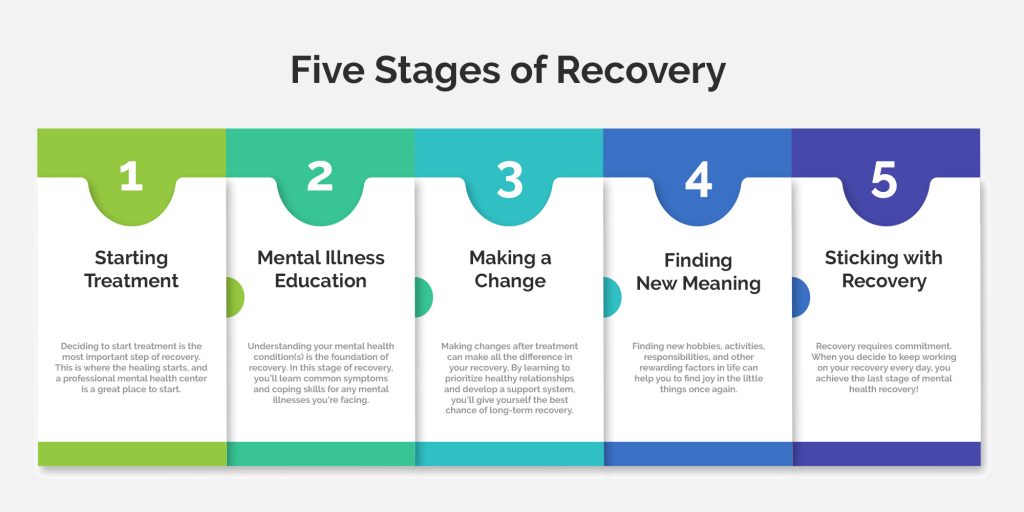The rehabilitation phase of recovery is a crucial stage in the journey toward physical, mental, or emotional wellness following an illness, injury, or substance abuse. This phase involves a comprehensive and multidisciplinary approach aimed at restoring functionality, promoting healing, and empowering individuals to regain control of their lives. Head over to The Hader Clinic to find out more about rehab and addiction treatment.In this, we will explore the key elements of the rehab phase, their significance in different contexts, and the diverse approaches employed to facilitate a successful recovery.
- Understanding the Rehabilitation Phase:
a. Physical Rehabilitation:
In cases of physical injuries or medical conditions, the rehab phase focuses on restoring physical function and mobility. This may involve exercises, physical therapy, and interventions tailored to the specific needs of the individual.
b. Mental Health Rehabilitation:
For individuals facing mental health challenges, the rehab phase encompasses therapeutic interventions, counselling, and support services. The goal is to improve mental well-being, manage symptoms, and enhance coping mechanisms.
c. Substance Abuse Rehabilitation:
In the context of substance abuse recovery, rehabilitation involves detoxification, counselling, and ongoing support to address the physical and psychological aspects of addiction. It aims to help individuals break the cycle of substance dependence and build a foundation for a drug-free life.
- Key Components of the Rehabilitation Phase:
a. Assessment and Goal Setting:
The rehabilitation process typically begins with a comprehensive assessment to understand the individual’s condition, capabilities, and goals. Setting realistic and achievable goals becomes a guiding principle throughout the rehabilitation journey.
b. Multidisciplinary Team Approach:
Successful rehabilitation often involves collaboration among various healthcare professionals, including physical therapists, occupational therapists, psychologists, social workers, and medical doctors. This multidisciplinary team works together to address the diverse needs of the individual.
- Significance of the Rehabilitation Phase:
a. Restoring Independence:
The rehab phase is instrumental in restoring independence for individuals who may have experienced a loss of function or autonomy. Through targeted interventions, individuals regain the ability to perform daily activities and participate actively in their communities.
b. Improving Quality of Life:
Whether recovering from a physical injury, managing a mental health condition, or overcoming addiction, the rehabilitation phase aims to improve overall quality of life. This includes enhancing physical health, emotional well-being, and social functioning.
c. Preventing Complications:
Timely and effective rehabilitation can help prevent complications associated with certain health conditions or injuries. For example, physical rehabilitation following surgery can reduce the risk of complications such as muscle atrophy or joint stiffness.
- Approaches to Rehabilitation:
a. Inpatient Rehabilitation Programs:
In some cases, individuals may participate in inpatient rehabilitation programs, where they reside in a facility dedicated to intensive rehabilitation services. This is common after major surgeries, severe injuries, or complex medical conditions.
b. Outpatient Rehabilitation Services:
Many rehabilitation programs are offered on an outpatient basis, allowing individuals to receive treatment while living at home. This flexibility enables individuals to integrate rehabilitation into their daily lives.
Conclusion:
The rehabilitation phase of recovery represents a transformative journey toward physical, mental, or emotional well-being. Whether recovering from a physical injury, managing mental health challenges, or overcoming substance abuse, rehabilitation is a dynamic and personalized process. By addressing the unique needs of each individual, involving a multidisciplinary team, and fostering a commitment to ongoing progress, the rehabilitation phase empowers individuals to reclaim their lives and move forward with resilience and purpose. It is a testament to the human capacity for healing and adaptation, marking a significant chapter in the pursuit of overall wellness and a fulfilling life.
